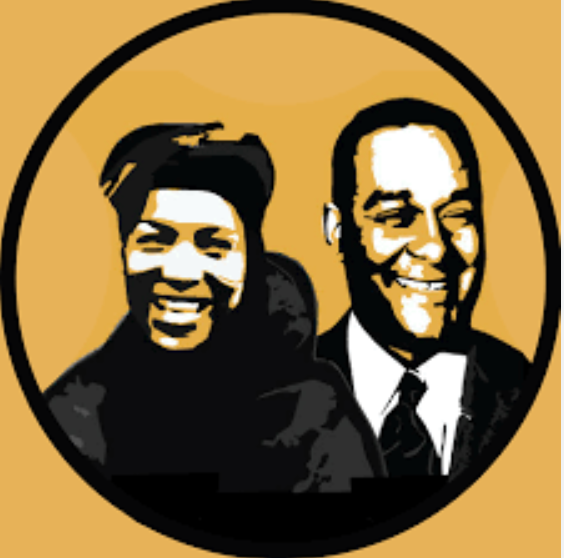
Fellowships

2024
In 2024, I participated in the Research Methods for Writers fellowship under the guidance of Lucy Anne Hurston, a renowned sociologist, writer, and niece of the iconic Zora Neale Hurston. Hosted by the Hurston/Wright Foundation, this intensive workshop provided an immersive experience in research methodologies explicitly tailored for writers.
Lucy Anne Hurston, author of "Speak, So You Can Speak Again: A Life of Zora Neale Hurston (2004)," drew from her extensive academic and literary expertise to guide participants in honing their research skills. Through lectures, discussions, and hands-on exercises, we explored the foundational principles of research, including sourcing credible information, conducting interviews, and integrating historical and cultural context into our writing.
The Hurston/Wright Foundation, dedicated to supporting and mentoring Black writers, has a long-standing history of fostering literary excellence. Since its founding in 1996, the organization has been instrumental in shaping the careers of Black authors, scholars, and thought leaders through workshops, awards, and literary events. The Virtual Writers Weekend, of which this fellowship was a part, offered an invaluable opportunity to engage in rigorous craft development alongside fellow writers.
Throughout the workshops, I gained practical tools to enhance the depth and authenticity of my writing, whether in nonfiction, fiction, or oral history projects. The weekend was an educational experience and a space for community building and mentorship, reinforcing the significance of research as a fundamental pillar of impactful storytelling.

In January 2025, I had the enriching experience of participating in the Senegal Writers’ Workshop hosted by Rose Pan African Education (RPA) in Saly and Dakar, Senegal. This immersive program, led by Airea Dee Matthews, a 2024 Guggenheim Fellow and former Philadelphia Poet Laureate, provided a powerful space for reflection, research, and writing.
With a strong focus on African diaspora history and its deep connections to the African continent, I used this fellowship to explore and refine my work on historical narratives and cultural continuity. The workshop structure included four days of rigorous writing and feedback sessions combined with four days of cultural immersion, where we visited Gorée Island’s Door of No Return, the Museum of African Civilization, and Dakar’s vibrant art district. These experiences deepened my understanding of the transatlantic slave trade’s impact, the resilience of African heritage, and how history shapes contemporary identity.
The RPA Writers’ Fellowship, founded by Dr. Nicole Richards Diop in honor of her mother, Dr. Rose Helen Merrell, is dedicated to expanding educational opportunities and fostering literary excellence across the African diaspora. Through its workshops and mentorship, it allows scholars, historians, ethnographers, and creative writers to conduct research, refine projects, and engage in meaningful discussions about African and diaspora histories.
Throughout the program, I developed new perspectives that will inform my future work while refining projects I aim to complete in the coming years. The immersive nature of this workshop, coupled with the intellectual rigor of our writing sessions, made this an invaluable experience that continues to shape my approach to storytelling, research, and historical inquiry.
2025

In May 2025, I had the transformative opportunity to participate in the ReglaSOUL Farming + Sustainability Program, an immersive five-day experience in Havana, Matanzas, and Pinar del Río, Cuba. This fellowship, led by ReglaSOUL co-founders Amberly Alene Ellis-Rodríguez and Alexey Rodríguez, provided a hands-on exploration of urban farming, regenerative agriculture, food justice, and Afro-Caribbean healing practices, all within the cultural and historical framework of the Afro-Cuban experience.
Rooted in community engagement, sustainability, and environmental justice, the program focused on addressing the challenges of food apartheid, ecological racism, and the disconnection from traditional land-based healing practices—issues that disproportionately impact Afro-descendant communities in Cuba. Through site visits to ReglaSOUL’s community garden, discussions with local farmers, herbalists, and Afro-Cuban religious leaders, and travel to Matanzas to study African resistance movements, I deepened my understanding of food sovereignty and sustainable solutions to Cuba’s food and climate challenges.
The program also included an excursion to Pinar del Río, where I engaged with rural agricultural cooperatives and witnessed innovative, land-based practices for self-sufficiency and climate resilience. These experiences highlighted the resilience, ingenuity, and deep spiritual ties that Afro-Cuban communities maintain with their land, even amid systemic challenges.
Beyond learning about sustainability, this fellowship reinforced the importance of mutual aid, grassroots organizing, and the preservation of cultural and agricultural traditions. By participating, I not only expanded my knowledge but also directly contributed to supporting local Cuban communities through ReglaSOUL’s sustainable relationship-building model.
This experience significantly informed my ongoing work in food security, cultural preservation, and environmental justice, offering critical insights into how Afro-Caribbean traditions and resistance movements can shape contemporary approaches to land stewardship and community well-being.
2025
Majella Mark
© 2025 by Majella Mark













